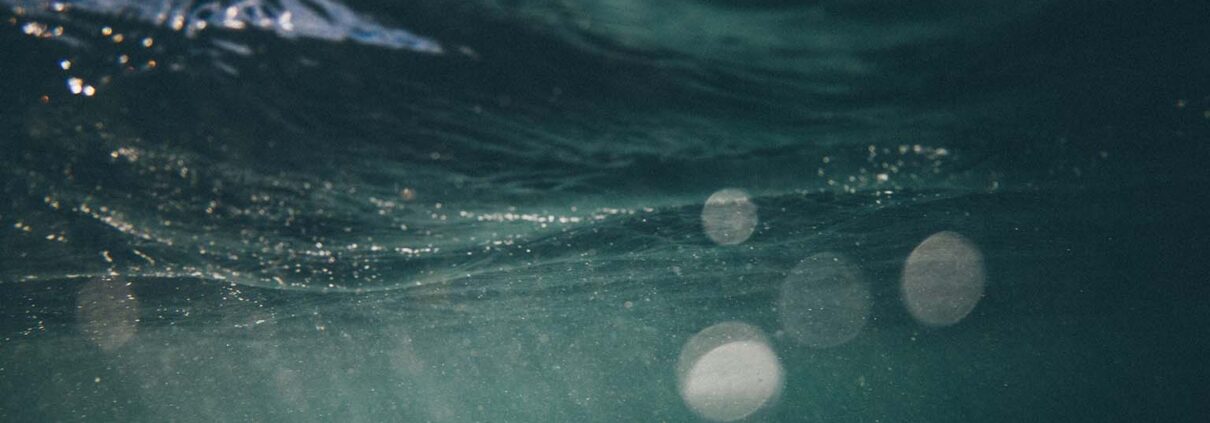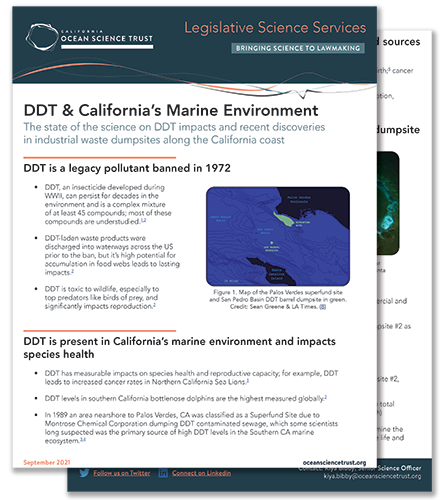The complexity of the ocean is mirrored by an equal complexity in the organizations that work alongside it. OST has deep, dynamic projects that together, help lead to robust solutions. Every conversation that I have had regarding one project, has potential to help inform another. One of the primary goals at OST is to bring actionable, informed science straight to policy makers.
One such project that I worked closely on during my CSU Council on Ocean Affairs, Science & Technology Summer Internship is Legislative Science Services. I was tasked with creating a two page informational fact sheet on a current coastal issue. I settled on a hot topic: DDT & California’s Marine Environment. Through exploration of known science on DDT, I was able to meet with Dr. Eunha Hoh, an incredibly passionate scientist who has devoted her whole career to better understanding the complexity of chemicals in the ocean.
The problem of deep sea ocean contamination is weedy, tough to quantify, and has devastating impacts. Legacy chemicals are not only penetrating the nearby deep sea environment, but these toxic compounds make their way through the food chain due to a process called bioaccumulation. Surprisingly, Dr. Hoh’s work shows that DDT levels in southern California bottlenose dolphins are the highest measured both nationally and globally. There are many more questions to be asked about next steps and what this, and other recent discoveries, mean for the larger ecosystem as a whole.
This ongoing research continues to support my belief that there is never one, or even a few, answers to a complex problem; especially with such deep interconnectedness as exists in the ocean. I hope that this resource will inform legislative staff on the importance of a multidisciplinary approach in future research to best understand the impacts of deep ocean pollutants. Actions matter; humans are not siloed from the greater ecosystem. We are as much a part of nature as any dolphin, squid, or abalone in the ocean, and we have the ability to inform, adapt, and do better.





